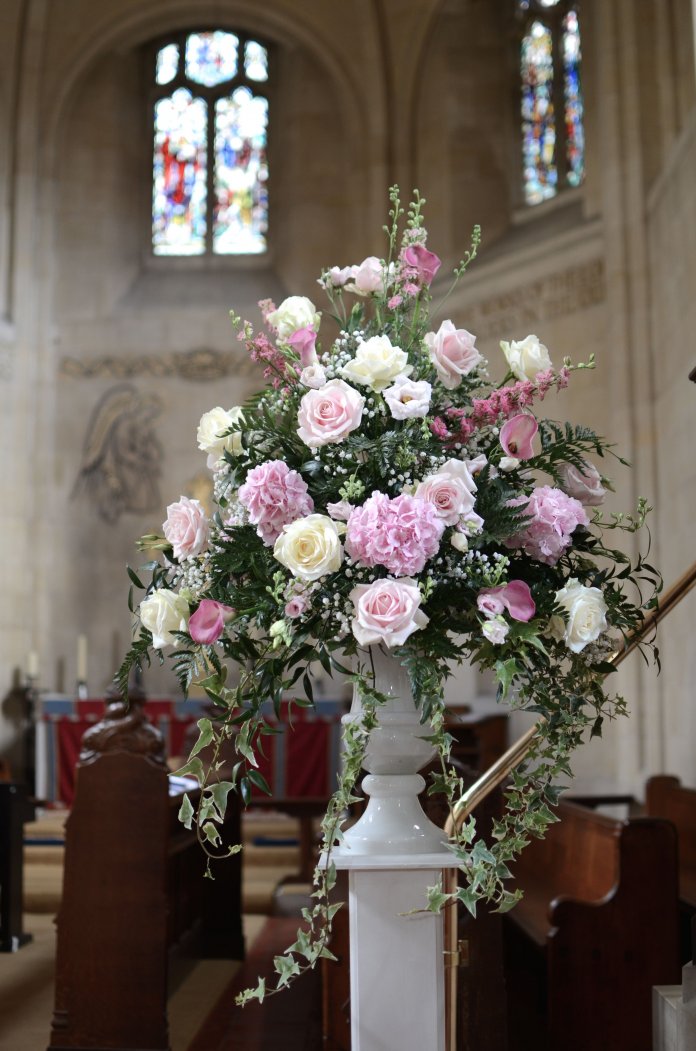John Betjeman knew that a church cannot run on prayers alone. ‘Let’s praise the man who goes to light the church stove on an icy night,’ he wrote in his poem ‘Septuagesima’, going on to celebrate the ‘hard-worked’ wardens, cleaners, treasurers, the organist and, most of all, ‘the few who are seen in their accustomed pew’ come rain or shine. ‘And though they be but two or three,’ he concluded. ‘They keep the church for you and me.’
Some vicars today may feel fortunate to garner two or three volunteers. A recent Church Times survey found a worrying decline in numbers taking on the lay roles of warden, secretary and treasurer. Between a quarter and 40 per cent of churches in each diocese had only one warden, not the required two, while more than a fifth were missing one or more other key officers.
In rural areas, where clergy numbers have been cut and congregations have fallen, meaning that one over-stretched vicar can be responsible for a dozen parishes, this is stark. In the diocese of Norwich, famed for its number of churches, 267 of them have fewer than a dozen worshippers; in Hereford, 250 get below 20. Reducing clergy, some have observed, does not help to swell numbers.
Even in my own parish in Blackheath, south-east London, where I am one of two wardens, we need more help. The vicar ran through a Betjemanesque encomium at the recent annual parochial church meeting, praising the cleaning team, the sides-people, the readers, those who do the flowers or serve tea et al (some appear several times), but only one of five vacancies on the parochial church council (PCC) was filled.
Our flock, though, is lucky to have many sheep. In smaller churches, filling voluntary vacancies is a headache, not helped by an ever-increasing bureaucracy from the centre. Consider the following recent tweets from C of E clergy and volunteers. ‘No one will be a warden,’ wrote Michael Roberts, vicar of St Michael’s, Cockerham. ‘The volume of stuff from on high puts them off.’ Daniel Thompson, rector of Icknield Benefice, wrote: ‘I am trying to explain the complexity of safeguarding portals and online dashboards to a 76-year-old.’ From Matt Triggs, PCC secretary at St Mary the Virgin in Nottingham: ‘Just had an email from our diocese to put reducing climate emissions on PCC agenda. We really don’t have the time or manpower.’
The C of E does love forms. My co-warden and I recently had a two-hour ‘visitation’ by the archdeacon. We had to fill out a 16-question form on our make-up and attendance figures; answer 55 more on parish finance; fill out a third form on when the drains were cleaned and the lightning conductor checked; and answer the questions ‘Do you have a plan for if the boiler breaks down?’ and ‘How will you make lighting more sustainable?’. My co-warden spent a weekend converting the emails by which our maintenance programme is run into a logbook as required. It wasn’t looked at.
The important thing for volunteers to realise if they want to stay sane is that they can say no to a lot. Our vicar is blessed (he may not always feel so) that a source in the diocese described my church to a colleague as ‘the one with the difficult wardens’. When our diocese was urging churches to close during Covid, we stood firm and worked out how to stay open. It was worth it and only possible because we made our own decisions rather than having to follow a diocesan blueprint. ‘Never forget: the parish is not the branch office of the diocese,’ says Marcus Walker, rector of Great St Barts in the City of London, and the co-founder of the Save the Parish campaign group. ‘It is an independent charity that occasionally sends “voluntary” grants to the diocese.’ He adds that the mentality of some leaders of the C of E towards volunteers is ‘they’re bloody lucky to be allowed to help and if they don’t like it they can just…’ Here he uses a vulgate phrase that may be translated as Nunc dimittis.
Vanishing volunteers is not just a church problem. The Department for Digital, Culture, Media and Sport reports that numbers of regular volunteers has fallen by 11 per cent in eight years. My vicar, Nicholas Cranfield, says there has been a noticeable shift in availability. Early retirees are on grandparenting duty and more women work full time. Some employers ban staff from volunteering in case it damages their professional reputation. ‘There are not so many qualified accountants out there,’ he says.
At the same time, there is a risk that in some places the church can look like a closed club, Cranfield adds. ‘The church was once seen as part of the community and people helped out, even if not worshippers, because it was something valuable that needed help to preserve.’ Some of them generously donated to our organ restoration fund because they felt a church should have a good instrument. As the 1,500 people in Blackheath who attend our Christmas Eve carol service outside church attest, there are more who feel drawn to church than those who make up the congregation on Sundays.
I see this call to serve in my aunt, who has no religious faith but lives near a church in East Budleigh, Devon, and has joined the cleaning roster and mows the churchyard. She sees it as her community duty to help her neighbours to worship while she drinks coffee and listens to the bells. We need to encourage more like her. I believe that more people will help if you ask them, if you make it easy for them and if you thank them.
At Easter a Church Times article compared the composition of the C of E to an egg. The focus is always on the bright, rich, colourful yolk – the clergy – but it is the volunteers in the pews who form the transparent part that binds the Church together. And if you are not careful, it can so easily run away.
Read it all in the Spectator










